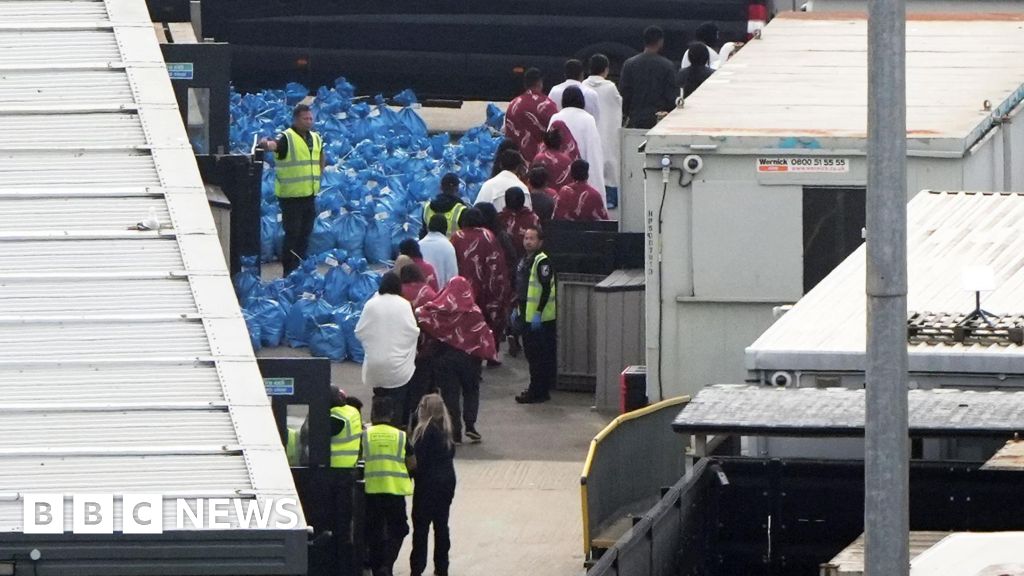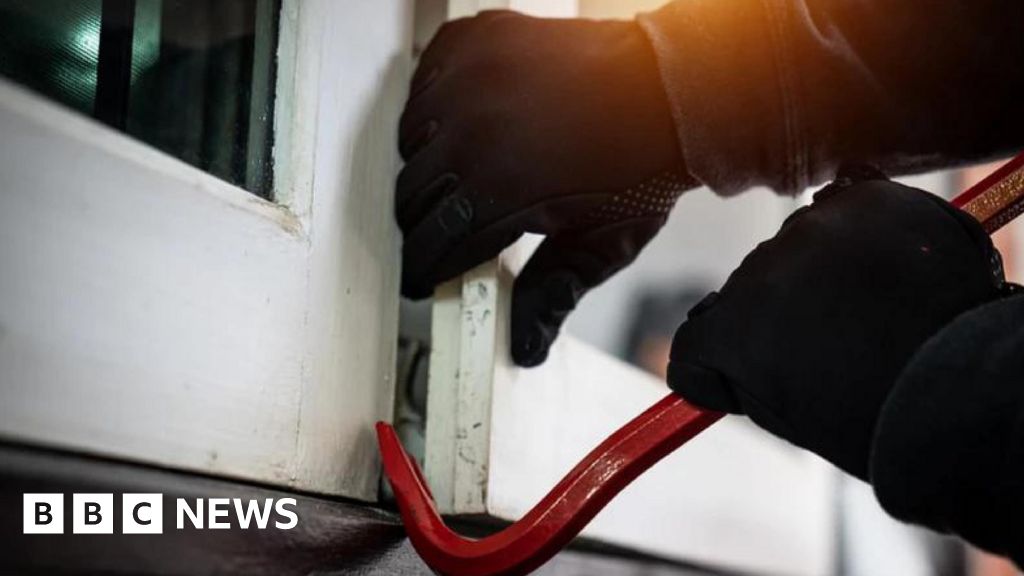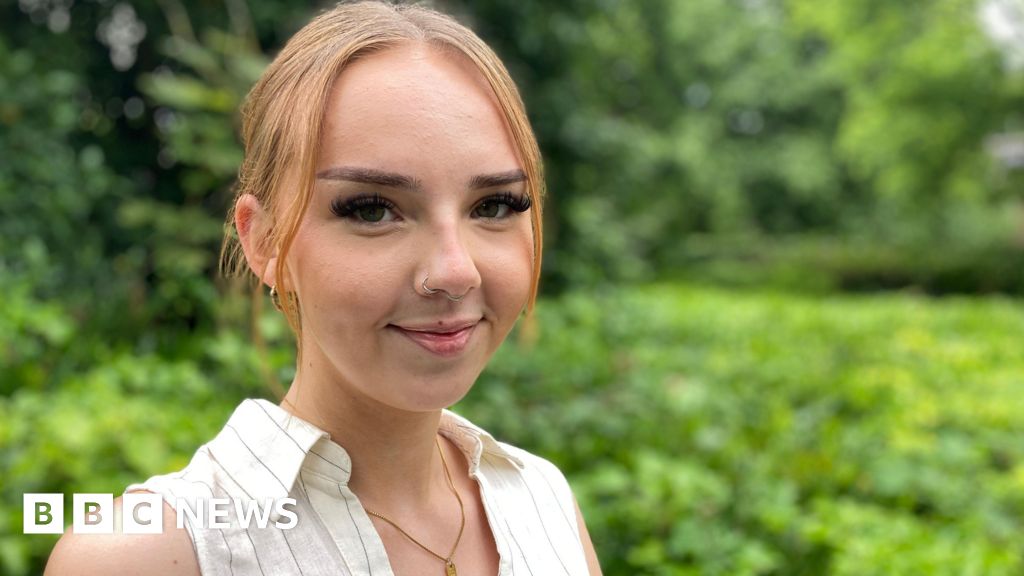- Investigations
Rihanna reveals she is expecting third child with A$AP Rocky
时间:2010-12-5 17:23:32 作者:Opinion 来源:Golf 查看: 评论:0内容摘要:Musk declined to comment on the Times report during his Oval Office appearance. He also avoided remarking on speculation that his departure was connected to tumbling sales at hisMusk declined to comment on the Times report during his Oval Office appearance. He also avoided remarking on speculation that his departure was connected to tumbling sales at his
Avelo’s involvement in the deportation programme has sparked intense public backlash. Upon the launch of the flights, protests erupted at airports in Burbank, California; Mesa, Arizona; and New Haven, Connecticut.A Change.org petition calling for a boycott of the airline has garnered more than 38,000 signatures. Avelo did not comment on the petition.

“From a reputational perspective, someone in a boardroom somewhere made the decision that the hit to reputation wasn’t as important as staying alive,” said Hannah Mooney Mack, an independent strategic communications consultant.Miller has taken action to raise awareness about the airline’s recent contract, funding two billboards near Tweed New Haven Airport that criticise Avelo’s participation in deportation flights. The signs read: “Does your vacation support their deportation? Just say AvelNO!”“I love almost all of the things that aviation does in helping bring people together and connect communities and things like that. This is decidedly not that. And it rubbed me the wrong way,” the congressman told Al Jazeera.

“I certainly understand that from a financial perspective there may be a need. I happen to disagree with it from a moral perspective and think it’s abhorrent.”Miller said he spent $7,000 on the billboards and 96 people contributed to the effort. Avelo reportedly convinced billboard operator Lamar Advertising to take down the ads, citing copyright concerns. Miller has since sued Avelo on First Amendment grounds. He said he’s fighting because he thinks people need to know about Avelo’s contract.

“I don’t like that this is happening, and I think other people should not fly Avelo as long as they are running these deportation flights.”
Southeast Asia’s multibillion-dollar online cyber-scam centres lure victims from as far as Africa with the promise of decent jobs.Al Jazeera reporters, posing as Chinese nationals who were looking to launder large sums of money, were offered several ways to remove all stains of corruption from their dirty cash.
Among those mechanisms was the use of Angel’s diplomatic clout. Officially, the pastor-diplomat is tasked with finding investors to come to Zimbabwe. However, Angel made it clear that he was willing to help smuggle gold and launder money.Zimbabwe needs dollars because the country’s own currency has lost its value in international trade due to hyperinflation. A commodity like gold is a good way to earn dollars, but international sanctions imposed on the country make it difficult for the government to export gold because of the additional scrutiny on officials in power.
“So you have to figure out other ways to do that,” Karen Greenaway, a former FBI investigator who tracks international money laundering schemes, told Al Jazeera. One way around: individual gold miners, who don’t face those restrictions.This scenario makes Zimbabwe fertile ground for money launderers who can help the country earn dollars in exchange for gold.
- 最近更新
- 2025-07-07 10:41:31Hurricane Erick approaches Pacific coast, threatens Mexico with flooding
- 2025-07-07 10:41:31At least one person killed, several injured, after earthquake hits Peru
- 2025-07-07 10:41:31guide Understanding Original Medicare
- 2025-07-07 10:41:31Zohran Mamdani stuns Democratic establishment in New York mayor race
- 2025-07-07 10:41:31How oil traders called the Middle East conflict
- 2025-07-07 10:41:31Video: Pro-Palestinian marches in cities around the world
- 2025-07-07 10:41:31Israel strikes Iran’s Isfahan nuclear site, buildings on fire in Tel Aviv
- 2025-07-07 10:41:31Eight killed after hot air balloon crashes in Brazil
- 热门排行
- 2025-07-07 10:41:31The 10-Minute Martha Stewart Tomato Recipe I've Been Making for 20 Years
- 2025-07-07 10:41:31Video: Pro-Palestinian marches in cities around the world
- 2025-07-07 10:41:31Gap insurance: How it works — and when the coverage is worth the cost
- 2025-07-07 10:41:31A port CEO panned Trump’s tariffs. Then a Chinese envoy’s wife sent praise
- 2025-07-07 10:41:31each lost over 30 pounds since October 2023
- 2025-07-07 10:41:31Pope century leads England fightback against India at Headingley
- 2025-07-07 10:41:31Air India plane crashes shortly after takeoff, carrying more than 240 people
- 2025-07-07 10:41:31US strikes only delayed Iran’s nuclear progress, says intelligence report
- 友情链接
- What is live shopping and will it take off? Kings of Leon cancel UK dates after 'freak' accident Nvidia revenues surge despite tariff uncertainty TT visitor trade offers 'crucial' boost to firms Our church inspired Sunset Song - we want to save it US green energy firms brace for federal funding cuts Can AI therapists really be an alternative to human help? The 'peacock of Savile Row' on dressing stars for the Met Gala Dozens injured by Israeli gunfire as crowds overwhelmed Gaza aid site, UN says What is live shopping and will it take off? India's colonial past revealed through 200 masterful paintings German chancellor promises to help Ukraine produce long-range weapons Australia's Liberal-National coalition reunite a week after split India's colonial past revealed through 200 masterful paintings TT car parks closed due to wet conditions Ukraine in maps: Tracking the war with Russia US hikers reported a death. But they imagined it while high on mushrooms Western Canada wildfires emergency hits another province as thousands flee Fake discounts on Shein 'breach law', EU says Glacier collapse buries most of Swiss village Warning after three bin lorry fires in one week 'Give it time' - ScotRail defends AI announcer Iona What tariffs has Trump announced and why? Record low rivers prompt drought experts meeting Sophie Habboo joins husband Jamie Laing as Radio 1 co-host Golden eagles soaring south back to English skies Where does court ruling leave Trump's tariff agenda? 'I didn't know my hoarding was a mental illness' Venezuela's ruling party claims election win as opposition boycotts poll From prodigy to leader: Can Shubman Gill shape the future of Indian Test cricket?
